10 reasons to choose Albania for IVF treatment
The performance of fertility clinics is constantly assessed and reviewed by an independent regulatory authority to ensure that all patients receive high quality care at all stages of their fertility journey.
Very liberal legal framework on fertility treatments. Single women may be offered all types of treatments. Additionally sperm and egg donation are allowed by the Albanian law.
All treatment types are offered at considerably lower prices compared to the UK. Although costs are lower the quality of care remains at high standards. You can see here what people think of our clinic.
Albania is connected to most of the UK airports with daily flights. The duration of the flight is approximately 3 hours.
Consultants and staff with training and work experience in the Europe. Fertility doctors have a very good reputation for their work and their results
You can have treatment when it is more convenient to you without having to join a long waiting list. The same applies to more complicated treatments like egg donation.
Most clinics have international departments that deal with you personally. Here you receive individualized attention by named staff members. This ensures consistency in messaging and continuity of care.
This is due to a combination of individualized treatment plans and use of cutting-edge equipment and lab techniques like blastocyst culture, pre-implantation genetic testing of the embryos and time lapse imaging.
Donation treatments are performed on anonymous basis according to the Albanian law. This means that sperm or egg donors do not have access to information regarding yourselves.
Last but not least the country itself. Albania is an excellent holiday destination with amazing history. You can combine your treatment with holidays to alleviate all the treatment related stress.
Our philosophy
Our philosophy in Hygeia Fertility Center is that our patient’s needs and wants are our priority.
At Hygeia Fertility Center, we aim for high quality care pre and post treatment. We are committed to offering high success rates and ensuring maximum safety. We are in the frontline of scientific advances in the field of fertility treatments and operate for your own safety according to the European guidelines of Bioethics.
Our team will be by your side every step of the way, providing support and suggesting realistic options. As every patient’s problem is unique, so is every treatment plan.
IVF Phases
Before beginning an IVF cycle your personal infertility physician will conduct tests to evaluate several variables critical to the procedure's success. The first variable in the success of IVF is your ability to respond to fertility drugs. Your personal infertility physician will measure the level of follicle stimulating hormone (FSH) during stimulation which helps estimate your ability to produce eggs in response to fertility drugs.
The second variable is your uterine environment. Just prior to ovulation, your personal infertility physician will look at your uterine lining by ultrasound (sonogram). The third variable is the male's fertility. A physician will analyze your partner's semen.
Women with normal ovarian function usually produce one egg per month. To increase the number of mature eggs available for fertilization, your ovaries will be stimulated with carefully regulated hormone doses, administered by injection. Your infertility physician will monitor your response to these hormonal preparations and track egg development through ultrasound scans and blood tests. Ovulation is then triggered by hormone injections. Each patient will receive a personalized calendar and IVF packet prior to these classes.
Egg retrieval is accomplished using a vaginal ultrasound probe to guide a needle into the ovaries. Retrieval usually takes no more than 20 or 30 minutes and patients receive sedation for the procedure.
The egg and fluid from each follicle are collected and carefully examined in the IVF laboratory. The eggs are isolated and placed inside an incubator. Eggs are combined with sperm and left to incubate together in the carefully controlled environment. Approximately three days after the egg retrieval, the best embryos contain around eight cells each. At Hygeia fertility clinic, embryos for some patients may be allowed to develop for an additional two days, known as the blastocyst stage. These embryos contain approximately 60 to 100 cells and represent the embryos with the highest potential for establishing a pregnancy. This means fewer embryos may need to be transferred, lowering chances for multiple births, but not lowering the chances for implantation and pregnancy.
The embryo is transferred using a small catheter. Using ultrasound-guidance, the embryos are then placed in the uterine cavity. There is generally very little discomfort. Following the embryo transfer, no extra rest is needed and you can resume your normal daily activities. Hatching and implantation will occur in the next two days.
You'll receive supplemental progesterone and estrogen to maintain the integrity of your uterine lining. Six to 10 days after the transfer, blood tests are taken. Rising blood levels of the pregnancy hormone hCG indicate that implantation has occurred. Other blood tests follow to confirm normal gestational progression. Clinical pregnancy is tested by ultrasound examination four weeks after the transfer.
Meet the team
Our dedicated team has helped many people fulfill their dream of having children. Experienced infertility specialists, highly qualified embryologists, caring midwives and treatment coordinators, as well as other trained team members, work hard in order to provide you with the best possible treatment and support that you need. Many past patients have offered to share their experience and how it felt to have IVF treatment abroad in our IVF stories section. We hope that this may help you understand how we work and why others have chosen to trust us with their treatment.
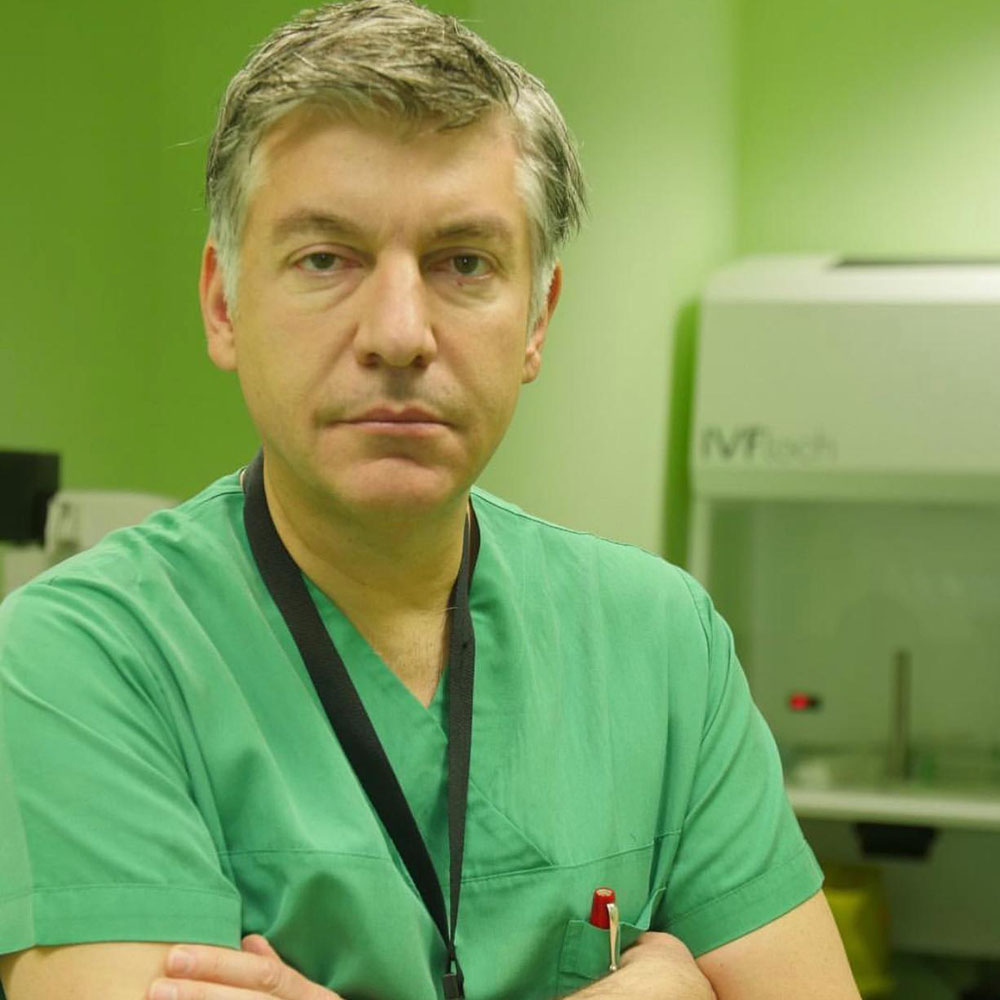
Dr. Stefanos Chandakas
Head of Hygeia Fertility Clinic Tirana, gynecologist and endoscopist
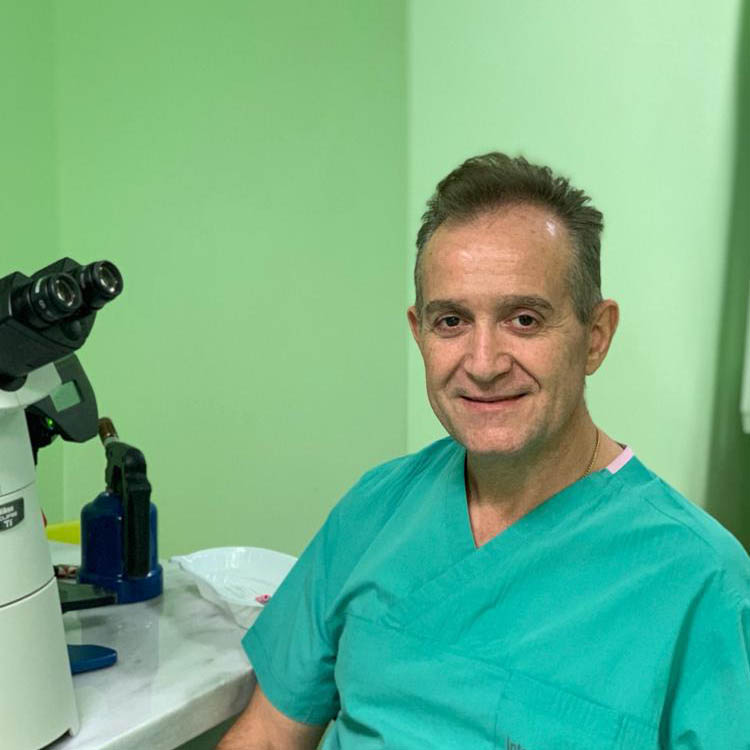
Dr. Marinos Tsirigotis
Specialist in Reproductive Health
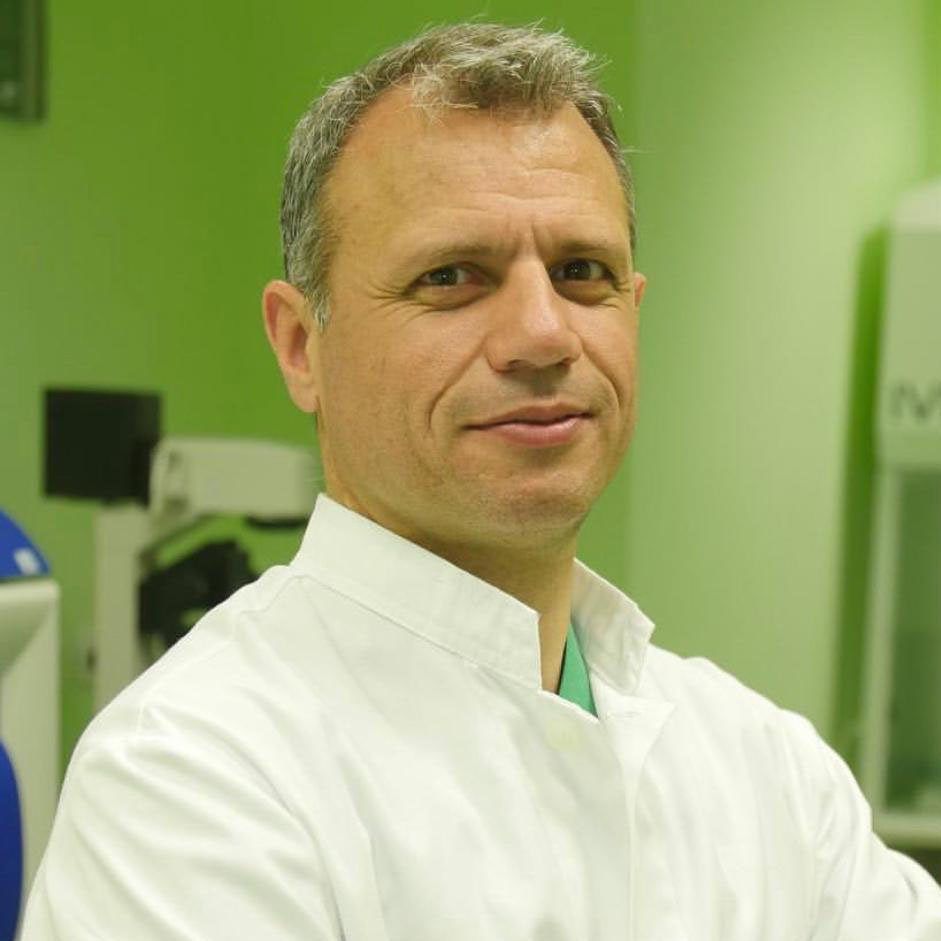
Dr. Michael Pelekanos
Head of Embryology Laboratory
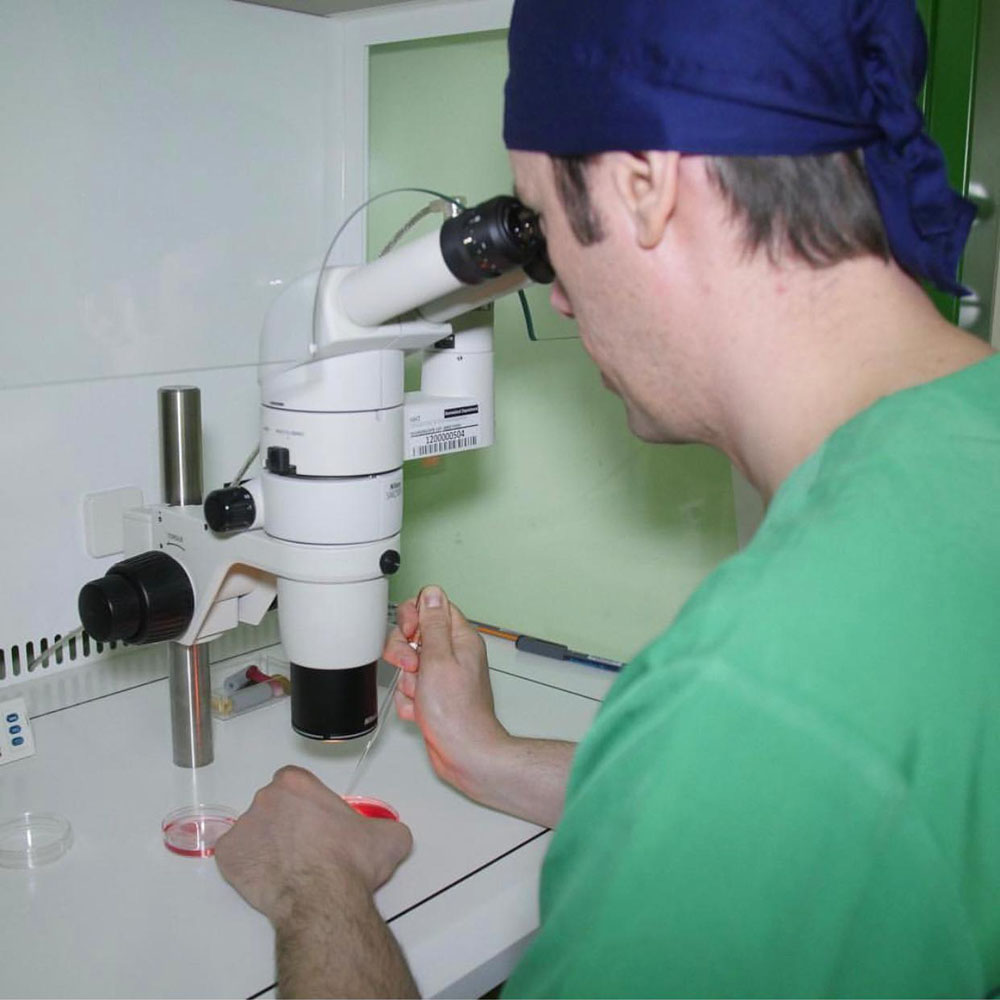
Dr. Marcel Haxhia
Embryologist
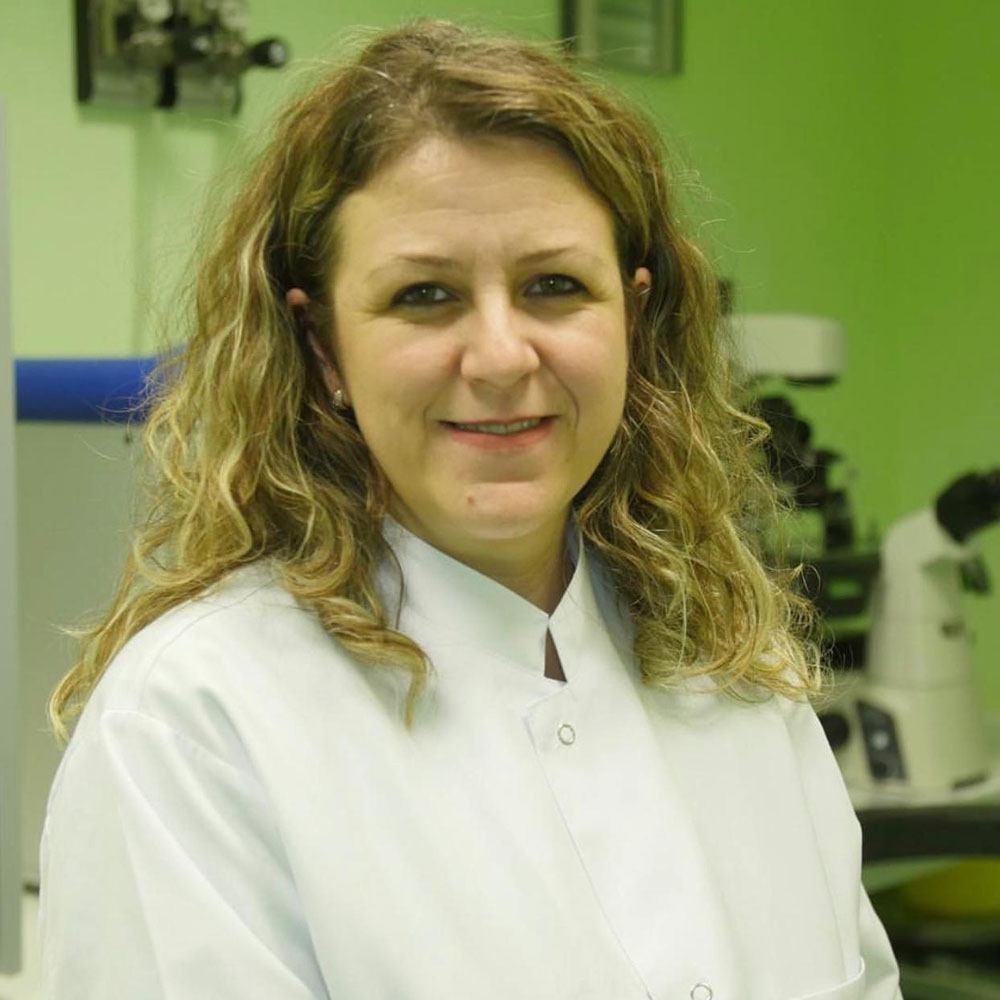
Dr. Otilja Dekovi
Gynecologist and Infertility Specialist

